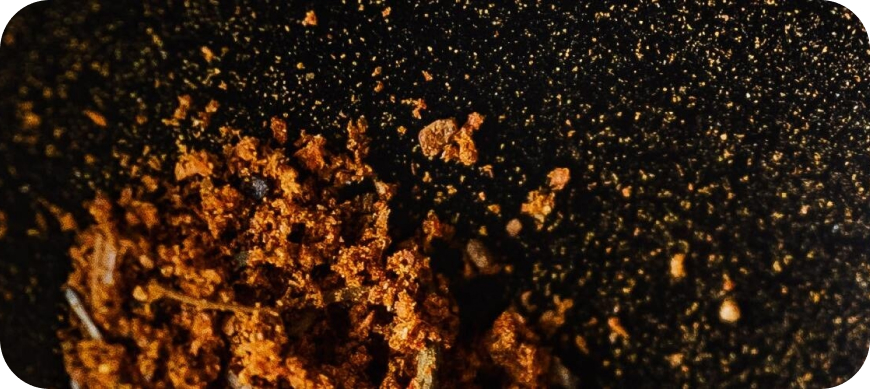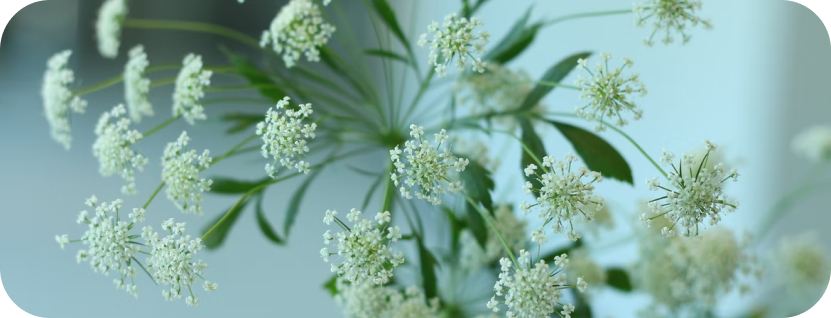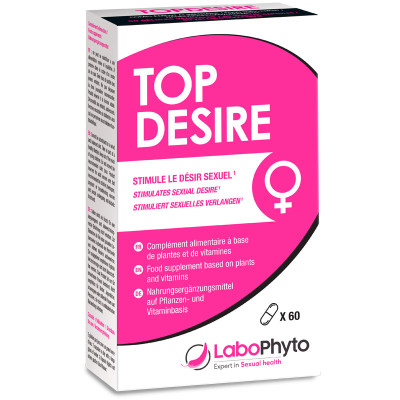
Complete guide to Dong Quai
Reading time: 15 minutes
Primarily known in the Western world as a remedy for menopausal and menstruation disorders, dong quai has been used in traditional Chinese medicine for this purpose and other disorders since ancient times. Read on to learn more about this tonic herb and find out where its traditional uses and modern science intersect.
The origins of Donq Quai

Also known as Chinese angelica , Dong Quai (Angelica sinensis) is an aromatic herb that grows in China , Korea, and Japan. Its reputation places it right behind ginseng and it is considered the most important tonic herb for women . It is nicknamed the "feminine ginseng".
It is used for virtually every gynecological condition, from regulating the menstrual cycle to treating menopausal symptoms caused by hormonal changes. By the late 1800s, an extract from Dong Quai known as Eumenol had become popular in Europe as a tonic for women. And this is still how he is considered in the West.
What is dong quai?
Clinical research shows different properties of this plant and in particular its positive action on uterine contractions.
The Dong Quai is especially appreciated in the disorders of the menopause . This plant acts as a regulator of the hormonal system , making it possible to balance the quantities of estrogen and progesterone in the woman's organism.
Dong Quai is excellent for fighting hot flashes . It is also very useful in alleviating premenstrual syndrome , this condition which manifests itself in the days before menstruation and which leads to water retention, swollen and painful breasts, a depressive tendency, crying spells, swings in the stomach. mood, irritability and aggression.
This plant also has immunostimulant properties. As is the case with echinacea, it promotes the production of interferon by the body . It is advantageously used in all cases of lack of resistance to infections. It also alleviates respiratory disorders , at the same time as it has anti-inflammatory properties . It can be used to advantage in all problems where inflammation is present.
Dong quai has been used as a herbal medicine for over 2,000 years. It is used in order to:
- strengthen blood health
- stimulate or activate blood circulation
- treat blood deficiencies
- regulate the immune system
- ease the pain
- relax the intestines
Herbalists prescribe dong quai to women who need to "enrich" their blood. To enrich, or nourish, one's blood means to increase its quality. Women may find the greatest benefits from dong quai after having a baby or during and after menstruation for issues like PMS, menopause, and cramps. This is why dong quai is also known as "female ginseng".
Dong quai is also called:
- Radix Angelica Sinensis
- tang kui
- dang gui
- Chinese angelica root
There is little scientific evidence on the direct benefits of dong quai. This plant is rather a therapeutic remedy and should not be used as a first-line treatment. Ask your doctor if you have any concerns or potential side effects, especially if you are taking medication.
What are the benefits of Donq Quai ?

A growing body of research shows that there may be scientific links between the uses of dong quai and its claims. But there aren't many well-designed western-style trials from which to draw a clinical conclusion. The proposed effects could be due to the trans-ferulic acid in dong quai and its ability to dissolve in fats and oils as an essential oil. These components may have anti-inflammatory effects and decrease blood clotting.
People likely to find benefits in dong quai are those who suffer from:
- heart problems
- high blood pressure
- inflammation
- headache
- infections
- nerve pain
- liver or kidney problems
According to Chinese medicine theory, different parts of the root can have different effects.
Promote good blood circulation
Available data on how your body absorbs and excretes dong quai suggests that dong quai may improve blood circulation and relieve pain. We have also found that aqueous and ethanolic extracts of dong quai effectively decrease fat accumulation. Excess fatty tissue can increase the risk of type 2 diabetes and heart disease.
According to the European Medicines Agency, a 2005 study reported increased blood flow and lower blood pressure in a dog, cat and rabbit after root oil injection. from dong quai.
Potential role in cancer treatment
Dong quai extracts have the potential to arrest the cell cycle and induce cell death in cancer cells. ResearchTrusted Source suggests that dong quai can potentially kill cancer cells for brain tumors, leukemia, and colon cancer. But other studies note that there is no significant impact against cancer cells, especially in humans.
A 2011 study found that taking dong quai may be effective in reducing the incidence of anemia – low red blood cell count – in people with cancer.
The near-universal uses of this herb mean that men and women take it for many reasons. Always consult your doctor before taking this herb. It can cause side effects with other medications you may be taking.
Why do women take Donq Quai?

As "female ginseng", dong quai is popular with many women who have:
- a pale and dull complexion
- dry skin and eyes
- blurred vision
- damaged nails
- frail body
- rapid heartbeat
- Soothe menstrual cramps
Women who experience abdominal cramps from their periods may find dong quai soothing. Ligustilide, a component of dong quai, has been shown to promote non-specific antispasmodic activity, especially for uterine muscles. Dong quai may also help regulate your menstrual cycle, although evidence for this is limited.
A 2004 study showed that 39% of women who took a concentrated dose of dong quai twice a day reported improvement in abdominal pain (to the point of no longer needing painkillers) and normalization of their cycle. menstrual. The majority (54%) felt that the pain was less severe, but they still needed painkillers to perform daily tasks.
home remedies for menstrual cramps
But the study was unbalanced, and the results were too similar to the control group to conclude that dong quai directly affects menstrual pain. It is possible that dong quai simply has a placebo effect.
Menopause
Some people take dong quai to treat hot flashes. However, a 2006 Trusted Source study published in the American Family Physician journal concludes that more research needs to be done on the effectiveness of dong quai in treating hot flashes. In a randomized controlled trial, which lasted over a year, no significant difference was found in women who took a hot flash management product containing dong quai as an ingredient.
Side effects in women
The American Pregnancy Association considers dong quai to be dangerous because it stimulates the muscles of the uterus, which can lead to miscarriage. This plant also has sedative and soporific effects, so it is not recommended to use it during lactation. Not using it while pregnant and breastfeeding is the surest way to know it won't affect your baby.
Dong quai can also act like estrogen in your body and affect hormone-sensitive conditions that worsen when exposed to estrogen, such as breast cancer.
There is also no scientific evidence regarding the potential of dong quai to boost your fertility. Studies show that dong quai can thicken the lining of the uterus, although this has only been tested in rats, these tests are still encouraging for improved fertility.
What are the side effects of Dong Quai?
Since the United States Food and Drug Administration (FDA) does not regulate dong quai, its side effects are not as well known as those of prescription drugs. However, some side effects and interactions have been confirmed by the 2,000 year history of dong quai as a supplement. These effects include
- breathing difficulties
- drop in blood pressure
- drowsiness
- fever
- headache
- increased risk of bleeding
- low blood sugar
- stomach ache
- sweat
- sleeping troubles
- vision loss.
People with allergies to plants in the carrot family, which includes anise, caraway, celery, dill, and parsley, should not take dong quai . Dong quai belongs to the same family as these plants and could cause a reaction.
Here are some other drugs that dong quai can potentially react with:
- birth control pills
- disulfiram, or Antabuse
- hormone replacement therapy
- ibuprofen, or Motrin and Advil
- lorazepam, or Ativan
- naproxen, or Naprosyn and Aleve
- topical tretinoin
- Blood thinners like warfarin, or Coumadin in particular, can be dangerous with dong quai.
This list is not exhaustive. Always consult your doctor before you start taking it, and carefully read the manufacturer's recommendations on how much to take.
How to use Dong Quai?
Only the Chinese or Japanese variety would be effective in gynecological disorders. For cases of premenstrual syndrome, menstrual irregularities or pain, and hot flashes, take 600 mg daily. We can favorably associate this plant, such as chaste tree, licorice and Siberian ginseng.



%201.png)
%201.png)




